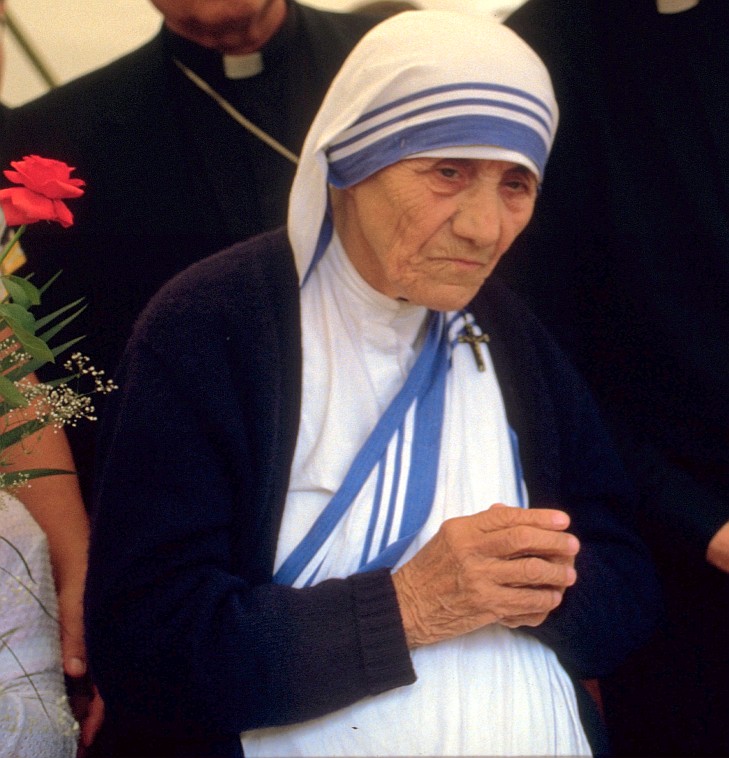
Mother Teresa
The link above connects to an article in Slate magazine written by Christopher Hitchens back in 2003. In it, he is sharply critical of the woman who has just become the latest Catholic saint (as of yesterday). Hitch points out a number of recorded and widely corroborated facts about MT, all facts that reflect badly on her. She was the opposite of worldly, and as Hitch points out, there were many hypocrisies in her public statements and actions over the years.
More tellingly, he has also been quoted as saying of her:
“MT [Mother Teresa] was not a friend of the poor. She was a friend of poverty. She said that suffering was a gift from God. She spent her life opposing the only known cure for poverty, the empowerment of women and the emancipation of them from a livestock version of compulsory reproduction.”
I find Hitchens' comments interesting and thought-provoking. He is in this comment at least, quite consistent with someone that he probably despised in life, namely Ayn Rand. Ayn Rand was the Russian immigrant who became a loyal citizen of the U.S. She is famous for having very effectively promoted the idea that informed, honest selfishness is the sanest and most moral attitude for a human being to take. She criticized the motives of the do-gooders of the world -- people like Mother Teresa -- for being, above all else, logically inconsistent. People who claim to love the poor, in Rand's view, must then commit to loving poverty, because keeping people poor is what gives the do-gooders a sense of purpose in this life.
The truth is more balanced and nuanced than any of these positions.
In order to last, a society needs the Hitchenses, the Rands, and the Mother Teresas. Reality is based on quantum uncertainty and entropy, which simply means that for a long time, the universe has provided and will continue provide more than enough suffering on its own to go around. Just holding the fabric of a nation together requires that a portion of the population dedicate themselves to taking care of others. In Mother Teresa's case, that good, useful motive simply got distorted. Unbalanced.

Ayn Rand
But we need the Rands in society as well. Many of the people who make the wealth that the rest re-distribute and feed on are driven egoists. The honest entrepreneurs and financiers are the really valuable ones, of course. The crooks who deplete wealth rather than create it we are hunting and jailing all of the time, as we should be. But the point is that if someone really driven isn't making wealth, there won't be any wealth to divide up. The work takes that kind of focus and energy.
Mother Teresa needs Ayn Rand, and people like the characters she creates in her novels to get the resources that she aims to divide up. But Ayn Rand also needs Mother Teresa to hold together a society in which the focused achievers like herself and her heroes can do the producing that they do.
And that sense of the balance that a society needs in order to flourish is what drove Hitch. He knew that the extremes are what poison us. He fought against them all of his life.
I didn't always agree with him. He was a dedicated atheist, and in that view I think he was mistaken. But he could think. As I am thinking today. I'm thinking more about Hitch than about the do-gooders or the egoists, and mourning his death in 2011. He sought to promote sanity and balance all his life.
He could think. There aren't a lot like him around in any era, and in our own times, it often seems that an ability to think is becoming more of a liability than an asset.
Or maybe I'm just feeling a bit down today.
In the shadow of the mushroom cloud, nevertheless friends, have a nice day.
Christopher Hitchens
No comments:
Post a Comment
What are your thoughts now? Comment and I will reply. I promise.